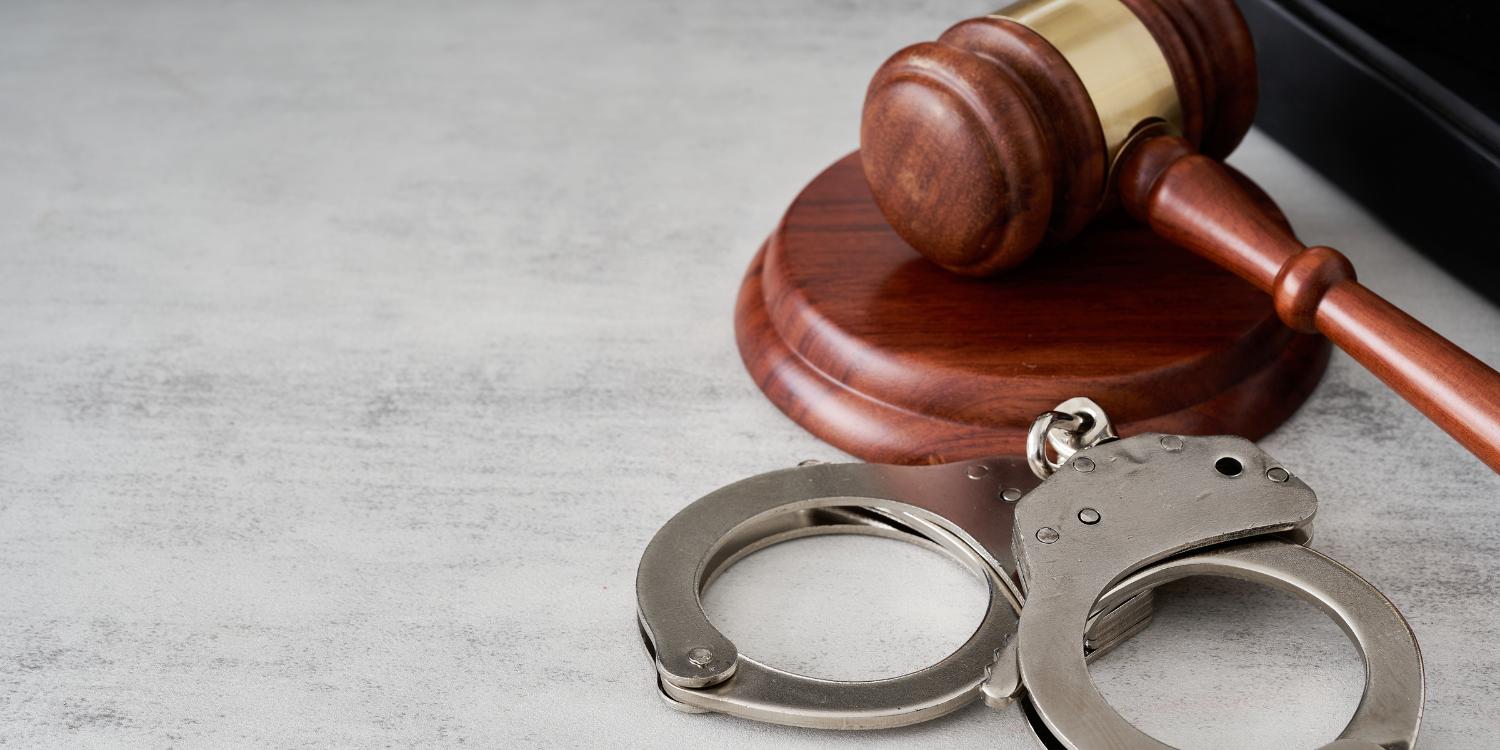Navigating probation in Colorado can be overwhelming, but with the right legal guidance, it doesn’t have to be. At WeedenLaw, our team of Colorado criminal defense attorneys is dedicated to simplifying the probation process for our clients. Understanding your rights and obligations under Colorado’s probation system is crucial, whether you’re exploring probation as an alternative to incarceration or dealing with the repercussions of a probation violation.
Our goal at WeedenLaw is to provide you with the knowledge and legal support necessary to effectively navigate Colorado criminal cases, ensuring the best possible outcome for your case. To schedule a consultation with one of our experienced Denver criminal defense attorneys, call (720) 307-4330 or complete our online contact form today.
What is Probation?
Probation is a court-ordered period of supervision of an offender, typically used as an alternative to incarceration. During probation, the offender remains in the community but must adhere to certain conditions set by the court. These conditions often include regular check-ins with a probation officer, abstaining from illegal substances, refraining from criminal activity, and sometimes attending counseling or educational programs.
Probation provides an opportunity for rehabilitation and reintegration into society while still holding the individual accountable for their actions. Failure to follow probation terms can result in severe consequences, including potential jail time.
Probation vs. Parole
Probation and parole are both forms of supervised release but differ in context and execution. Probation is an alternative to imprisonment, often granted to first-time or low-risk offenders. It is a sentence handed down directly by the court at the time of sentencing, allowing the offender to live in the community under specific conditions.
Parole, on the other hand, is a conditional release from prison granted to inmates who have already served a portion of their prison sentence. It is typically decided by a parole board and is used as a means to reintegrate offenders back into society while still under supervision and subject to certain conditions. Both systems aim to rehabilitate offenders, but probation is a sentencing alternative, while parole is a part of the post-incarceration reentry process.
What Crimes Usually Get Probation?
Probation is often granted for non-violent, minor, or first-time offenses where the court deems the offender unlikely to pose a significant risk to society. Common crimes that often result in probation include minor drug offenses, petty theft, DUIs, vandalism, and other misdemeanor crimes.
The decision to grant a probation sentence considers various factors, such as the nature of the crime, the offender’s criminal history, their behavior in court, and the impact on victims. The goal is to provide an opportunity for rehabilitation and to prevent the negative effects of incarceration on low-risk offenders. However, the decision ultimately rests with the court, and probation is not guaranteed for any specific crime.
Types of Probation
Probation offers alternatives to incarceration but comes in different variations, each tailored to the offender’s specific needs and the probation department’s requirements. These types provide a range of supervision levels and conditions, reflecting the diversity in offenses and individual circumstances.
It’s important to note that these rules are general guidelines and can vary. Probationers should understand the specific conditions of their probation as outlined by the court to ensure full compliance.
Unsupervised Probation
Unsupervised probation, also known as informal or administrative probation, is a less stringent version and is assigned for minor offenses or to low-risk individuals. In this arrangement, offenders are not required to report to probation officers. Still, they must adhere to court-set conditions like paying fines, attending classes, or doing community service, all without regular officer monitoring.
Unsupervised Probation Rules
While unsupervised probation is less strict, it still follows rules that must be followed to avoid a probation violation and legal consequences.
- Avoid Criminal Activity: Refrain from any new offenses to prevent additional charges or probation revocation.
- Comply with Court Orders: Fulfill all court-ordered obligations, including paying fines, victim restitution, attending mandatory programs, and community service.
- Notify of Changes: Inform the court or probation department about changes in living or employment status.
- Abstain from Drugs and Alcohol: Avoid illegal drug use and excessive alcohol consumption, especially if related to the original offense.
- Pay Restitution: Fulfill court-ordered restitution to victims as required.
- Travel Restrictions: Follow any limitations on travel, seeking permission for out-of-state journeys where necessary.
Supervised Probation
Supervised probation requires an offender to report to a probation officer and adhere to a stricter set of conditions. This type of probation is typically reserved for higher-risk offenders or those convicted of more serious crimes.
Supervised Probation Rules
Supervised probation involves a set of specific rules that can vary based on jurisdiction and individual case circumstances but generally include the following:
- Regular Reporting: Report to his or her probation officer as scheduled (weekly, biweekly, or monthly).
- Pay Monthly Probation Supervision Fee: Offenders on supervised probation must pay $50 per month for supervision fees. Additional fees may also required.
- Employment Requirements: Maintain steady employment or actively seek a job; school or vocational training may be required.
- No Criminal Activity: Avoid committing any new crimes to prevent probation revocation.
- Drug and Alcohol Restrictions: Abstain from illegal drugs and excessive alcohol, subject to random testing.
- Curfew Compliance: Adhere to curfew requirements, staying at residence during designated hours.
- Counseling/Treatment Programs: Participate in counseling, anger management, substance abuse programs, or other court-ordered treatments.
- Travel and Association Restrictions: Obtain permission for out-of-state/country travel; avoid contact with known criminals.
- Community Service: Complete court-ordered community service hours.
- Restitution and Fines: Pay restitution to victims and any court-imposed fines.
- Home Visits and Searches: Comply with home visits and searches by probation officers for compliance checks.
Intensive Supervised Probation
Intensive Supervised Probation (ISP) is a highly rigorous form of probation designed for high-risk offenders or those who require closer monitoring than standard supervised probation. This form of probation supervision involves strict compliance with a range of conditions that surpass the usual supervised probation requirements.
Intensive Supervised Probation (ISP) Rules
Under Intensive Supervised Probation, offenders must follow strict rules while their probation officers closely monitor them. Common rules for ISP include:
- Frequent Reporting: Regular meetings with a probation officer, often multiple times weekly.
- Strict Curfews: Requirement to be at residence during specific hours, especially at night.
- Electronic Monitoring: Use of devices like ankle bracelets for movement tracking and curfew compliance.
- Drug and Alcohol Testing: Regular and random testing to maintain sobriety.
- Employment/Education: Participation in educational programs, vocational training, or maintaining employment.
- Mandatory Counseling/Treatment: Involvement in substance abuse, anger management, mental health counseling, or other court-ordered programs.
- No Unapproved Contact: Avoid contacts or places linked to criminal activity, including known criminals.
- Travel Restrictions: Limited travel, particularly out-of-state, and requires probation officer’s permission.
- Community Service: Requirement to complete a specified number of community service hours.
- Home Visits and Searches: Unannounced visits and searches by probation officers.
- Restitution and Fines: Payment of court-ordered restitution to victims and fines.
Juvenile Probation
Juvenile Probation is a form of sentencing used for minors who have committed juvenile criminal offenses in Colorado, focusing on rehabilitation rather than punishment. The aim is to guide juveniles towards positive behaviors, helping them avoid future involvement in the criminal justice system. Juvenile probation also involves the family, emphasizing the importance of a supportive home environment in the rehabilitative process. Failure to comply with the terms of juvenile probation can result in further legal consequences, including potential placement in a juvenile detention center.
Juvenile Probation Rules
The rules of juvenile probation are tailored to address the developmental needs of minors and often include:
- Regular School Attendance: Mandatory attendance at school without unexcused absences.
- Curfew Compliance: Adherence to specific curfew times, requiring juveniles to be home during designated hours.
- Probation Officer Meetings: Regular check-ins with a juvenile probation officer for progress monitoring.
- No Criminal Activity: Avoid any further legal violations.
- Drug and Alcohol Prohibition: Mandatory abstinence from illegal drugs and alcohol, possibly enforced by random testing.
- Counseling/Therapy Participation: Involvement in court-directed counseling or therapy sessions (individual, family, or group).
- Community Service: Completion of assigned community service hours.
- Obeying House Rules: Adherence to specific rules set by parents or guardians.
- Restriction on Associations and Locations: Avoiding certain individuals or locations that may lead to negative influences.
DUI/DWAI Probation
DUI (Driving Under the Influence) and DWAI (Driving While Ability Impaired) probation programs focus on preventing future incidents of impaired driving and promoting public safety.
DUI/DWAI Probation Rules
DUI and DWAI probation come with a set of stringent rules aimed at preventing repeat offenses. Common regulations for DUI/DWAI probation include:
- No Alcohol or Drug Consumption: Mandatory total abstinence from alcohol and illegal drugs, confirmed through random testing.
- Regular Probation Officer Meetings: Offenders must consistently report to their probation officer.
- DUI Education and Therapy: Required participation in programs about impaired driving risks and consequences.
- Substance Abuse Evaluation and Treatment: Completion of evaluations and adherence to recommended treatment plans for substance issues.
- Ignition Interlock Device Usage: Installation of devices in vehicles to prevent operation if alcohol is detected.
- Restricted Driving Privileges: Limited driving rights with specific court-imposed conditions.
- Community Service: Obligation to complete assigned community service hours.
- Fines and Restitution Payment: Payment of court-ordered fines and restitution.
- Avoiding Criminal Behavior: Requirement to maintain a clean criminal record with no new offenses.
How To Get Probation Instead of Jail Time?
When working towards receiving a probation sentence instead of jail time, presenting a compelling case to the District Attorney and the court is crucial. This often involves demonstrating remorse, a willingness to reform, and being a responsible member of society.
Working with an experienced Colorado criminal defense attorney can also greatly increase your chances of receiving a probation sentence. Attorney Jeff Weeden from WeedenLaw can highlight a previously clean criminal record, the nature of the offense, and personal circumstances. However, the final decision rests with the judge, who will weigh the recommendations of the District Attorney and the probation office.
How Long Does Probation Last?
In Colorado, the length of probation varies depending on the nature of the offense and the specific circumstances of each case. For misdemeanors, probation typically lasts one to two years, but it can extend up to five years for more serious offenses. Felony probation can range from two to ten years.
The court determines the duration of probation at the time of sentencing, considering factors such as the severity of the crime and the defendant’s criminal history. It’s important to note that compliance with probation terms can influence its length, as courts sometimes have the discretion to shorten probation periods for good behavior or extend them for violations.
What Happens if You Violate Probation in Colorado?
In Colorado, probation violations can lead to serious consequences. The probation officer may issue a warning or require a court hearing when a violation occurs. During the hearing, the court evaluates the nature and severity of the violation.
Outcomes of Colorado probation violations range from modifying the probation terms to increasing supervision. In more severe cases, such as repeated violations or committing new crimes, the court may revoke probation entirely, leading to incarceration. The judge considers factors like the type of violation, the offender’s history, and the original offense. Individuals on probation must understand and strictly adhere to their probation terms to avoid these potential repercussions.
How Experienced Denver Criminal Defense Attorney Jeff Weeden Can Help
With extensive knowledge and experience, Denver criminal defense attorney Jeff Weeden specializes in advocating for probation as an alternative to incarceration, navigating the intricacies of probation terms, and addressing violations effectively. His approach is tailored to each client’s circumstances, focusing on securing favorable probation conditions and providing robust defense in probation violation hearings.
Attorney Jeff Weeden’s commitment to his clients extends beyond legal advice, ensuring they are well informed and supported throughout the probation process. This level of expertise is invaluable for those seeking to receive probation and mitigate the impact of criminal charges on their lives.
Contact WeedenLaw Today for Help Navigating the Colorado Criminal Justice System
Whether you’re dealing with criminal charges, seeking probation, or facing a probation violation, WeedenLaw provides the expertise and personalized strategy you need. Our commitment to justice and an in-depth understanding of the legal system make us a crucial ally in securing the best possible outcome for your case. Contact the Colorado criminal defense attorneys at WeedenLaw by calling (720) 307-4330 today.

















